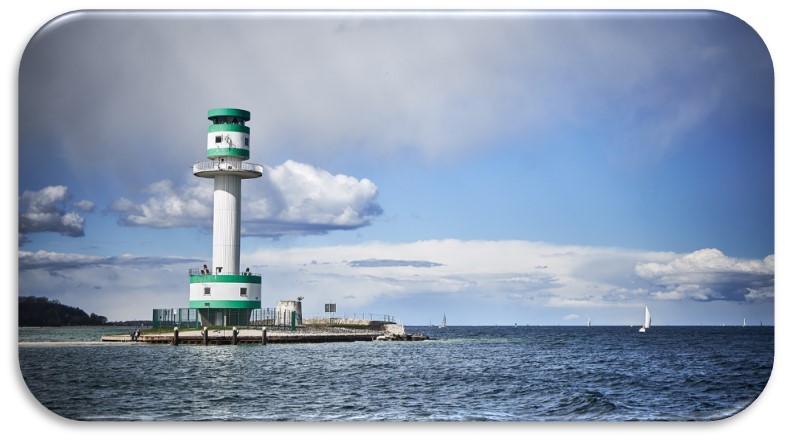¿Para qué es necesaria una política cultural? La política cultural de Kiel en el desarrollo de la ciudad, la cohesión social y los valores intrínsecos

DOI
https://doi.org/10.25267/Periferica.2021.i22.17Información
Resumen
Kiel es un caso especial en cuanto a la política cultural. Al contrario que en gran parte de las ciudades alemanas medianas, la política cultural ha cobrado una gran importancia y está relacionada con la idea de posicionar Kiel como «ciudad creativa». Parece que hay unanimidad en que toda la ciudad de Kiel tenga un gran potencial para la creatividad, la cual, sin embargo, aún no está agotada. Este texto ofrece una visión de conjunto y su objetivo es averiguar de dónde proviene esta excepcional posición de Kiel. Asimismo, se identifica la decisión estratégica para aplicar una aproximación de ciudad creativa, se centra en las industrias creativas como un hito, se hace una mayor aproximación a la ciudad creativa y se propicia cada vez más una iniciativa impulsada por los ciudadanos. La integración política en un sistema de muchos niveles, el carácter sociocultural de la ciudad y la influencia de los institutos de enseñanza superior ofrecen enfoques explicativos.
Palabras clave: Kiel; política cultural; ciudad creativa; clase creativa; cohesión social.
Cultural policy for what? Kiel’s cultural policy between city development, social cohesion and intrinsic values
Abstract: Kiel is a special case in terms of cultural policy: Unlike in most other medium-sized German cities, cultural policy has become highly relevant and is linked with the idea of positioning Kiel as an “creative city”. There seems to be an unanimity that the city of Kiel as a whole has a great deal of potential for creativity, which, however, has not yet been exhausted. The following text gives an overview and tries to find out where this unique position of Kiel comes from. It has identified the strategic decision to apply a creative city approach, while focusing on creative industries as a milestone, taking a wider approach to the creative city, increasingly fostering citizen driven initiative. Explanatory approaches are offered by the political integration into a multi level system, the socio-cultural character of the city, as well as the influence of the institutes of higher education.
Keywords: Kiel; cultural policy; creative city; creative class; social cohesion.
Artículo recibido: 14/10/2021. Revisado: 19/10/2021. Aceptado: 28/10/2021
Descargas
Cómo citar
Licencia

Esta obra está bajo una licencia internacional Creative Commons Atribución-NoComercial-SinDerivadas 4.0.

Este obra está bajo una licencia de Creative Commons Reconocimiento-NoComercial-SinObraDerivada 4.0 España.
Citas
Beck G., Kropp C. (2012): “Die Gesellschaftwirdinnovativ –und die Wissenschaftvonihr? ZurEinleitung“. En: GesellschaftinnovativeWersind die Akteure? Wiesbaden. Springer VS, pp 11-28.
FLORIDA R. (2002), The Rise of the Creative Class. Nueva York: Basic Books.
Hardiman M. (2021): Wiekreativist Kiel? Disponible en: https://www.kiel.de/de/kultur_freizeit/kreative_stadt/ Ergebnisbericht_Website.pdf [Consultado 09-10-2021]
Heinrich-Böll-Stiftung Schleswig-Holstein (2020): Urban Labon “Strategic Goal Setting and Creative Bureaucracy. Disponible en: https://www.cultural-planning-kiel.de/ fileadmin/user_upload/Documentation_Urban_Lab_2020. pdf [Consultado 09-10-2021]
JACOBSEN, K (2019): “Verhandeln, kooperierenundPerspektivenschaffen. RUHR.2010 undseineFolgenalsBeispieleinerMultilevel Cultural Governance“. En: GAD, D.,
SCHROECK, K. & WEIGL, A. (eds.): ForschungsfeldKulturpolitik - eineKartierungvonTheorieund Praxis. Hildesheim: Georg OlmsVerlag, pp. 291-302.
JUNGHÖLTER, M (2016): Kiel: KleineStadtgeschichte. Regensburg: Verlag Friedrich Pustet.
Landeshauptstadt Kiel (2021a). HaushaltsplanderLandeshauptstadt Kiel 2021, Band 1. Disponible en: https://www.kiel.de/de/politik_verwaltung/finanzen/_haushaltsplanung/2021/Haushaltsplan_2021_LH_ Kiel_Band_1.pdf [Consultado 09 10-2021]
Landeshauptstadt Kiel (2021b): Kiel 2042 Zukunftsdialog. Disponible en: https://www.kiel.de/de/kiel_ zukunft/2042/index.php [Consultado 09-10-2021]
Landeshauptstadt Kiel (2021c): Sozialbericht 2021.
Disponible en: https://www.kiel.de/de/gesundheit_soziales/sozialplanung_berichte_konferenzen/_dokumente_
sozialbericht/kieler_sozialbericht_2021.pdf [Consultado
-10-2021]
Landeshauptstadt Kiel (2018): Leitlinienfür die kommunaleKulturförderungderLandeshauptstadt Kiel. Disponible en: https://www.kiel.de/de/kultur_freizeit/ kreative_stadt/_dokumente_foerderung_kulturamt/leitlinie_kommunale_kulturfoerderung_kiel.pdf [Consultado 09-10-2021]
Landeshauptstadt Kiel (2015): KreativKiel – StadtimDialogzurEntwicklungderKulturundKreativwirtschaft. Disponible en: https://www.kiel.de/de/kultur_freizeit/ kreative_stadt/_projekt_kreativ_kiel_stadt_im_dialog/ dokumentation_kreativkiel.pdf [Consultado 09-10-2021]
LANDRY, C. (2009): The creative city: A toolkitfor urban innovators. Londres: Earthscan.
LANDRY, C., Hyams J. (2012): The Creative City Index: Measuring the Pulse of the City, Gloucestershire, Reino Unido,
Comedia.
MOHR, H., 2020: Interview Statement in Kultur Management Network, Den Kulturblick in die Zukunftrichten. Disponible en:https://www.kulturmanagement. net/Themen/Innovation-und-Kulturpolitik-Den-Kulturblick-in-die-Zukunft-richten,4193, Consultado 10-10-2021]
LÄTZEL, M. (2019): “Kulturpolitik in Schleswig-Holstein“. En: KNELANGEN, W. & BOYKEN, F. (eds.). PolitikundRegieren in Schleswig Holstein. Wiesbaden, Springer VS, pp. 259-277.
OGOREK, M., & PU, T. (2005): “The Allocation of Cultural Policy Powers in the Federal Republic ofGermany”, German LawJournal, 6(10), pp. 1335-1354 DOI: 10.1017/S2071832200014358.
TAUSCHEK, M. (2016): Macht, PolitischeKultur, Widerstand. StudentischerProtestanderUniversität Kiel. Münster/NuevaYork: Waxmann.
WETZEL, L. (2021): Nachhaltigkeitsbilanzierungfür den Tourismus in derDestination Kiel, Bachelors Final Project., Hochschule Bremen.
ZAHARIADIS, N. (2019). Themultiplestreamsframework: Structure, limitations, prospects. En: SABATIER, P. (ed.) Theoriesofthepolicyprocess. Routledge, 2019. pp. 65-92.





